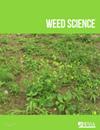杂草研究重点综述:主要发现和未来方向
IF 2.1
2区 农林科学
Q2 AGRONOMY
引用次数: 1
摘要
摘要我们对美国和加拿大的杂草科学家进行了一项在线调查,以(1)确定对未来5至10年推进杂草科学至关重要的研究主题,以及(2)深入了解解决这些优先事项所需的现有专业知识和资金来源的潜在差距。受访者被要求优先考虑九个广泛的研究领域,以及每个广泛领域中的5到10个子类别。我们收到475份回复,其中大多数回复隶属于学术机构(55%),并在经济作物(农学或园艺)研究系统工作(69%)。这项调查的结果为政策制定者、资助机构和学术机构在为杂草科学研究分配资源时提供了宝贵的讨论点。值得注意的是,我们的调查显示,文化和预防性杂草管理(CPWM)以及精准杂草管理和机器人技术(PWMR)这一新兴领域具有很强的优先性。尽管除草剂仍然是一个高度优先的研究领域,但我们的调查结果反映了持续的挑战,需要综合的非化学策略(如除草剂抗性)和新出现的机会(如机器人)。尽管之前呼吁在杂草研究中更好地理解和应用杂草生物学和生态学,最近也呼吁进一步整合社会科学观点以应对杂草管理挑战,但这些领域的排名远低于更直接关注杂草管理的领域。我们的调查还发现了几个领域的研究重点和专业知识之间的潜在不匹配,包括CPWM、PWMR和杂草基因组学,这表明这些主题应该是扩大培训和合作的主要目标。最后,我们的调查表明,研究越来越依赖私营部门的资金,这引发了人们对我们学科解决重要研究优先领域的能力的担忧,这些领域缺乏明确的私营部门投资激励措施。本文章由计算机程序翻译,如有差异,请以英文原文为准。
A Survey of Weed Research Priorities: Key Findings and Future Directions
Abstract We conducted an online survey of weed scientists in the United States and Canada to (1) identify research topics perceived to be important for advancing weed science in the next 5 to 10 years and (2) gain insight into potential gaps in current expertise and funding sources needed to address those priorities. Respondents were asked to prioritize nine broad research areas, as well as 5 to 10 subcategories within each of the broad areas. We received 475 responses, with the majority affiliated with academic institutions (55%) and working in cash crop (agronomic or horticultural) study systems (69%). Results from this survey provide valuable discussion points for policy makers, funding agencies, and academic institutions when allocating resources for weed science research. Notably, our survey reveals a strong prioritization of Cultural and Preventative Weed Management (CPWM) as well as the emerging area of Precision Weed Management and Robotics (PWMR). Although Herbicides remain a high-priority research area, continuing challenges necessitating integrated, nonchemical tactics (e.g., herbicide resistance) and emerging opportunities (e.g., robotics) are reflected in our survey results. Despite previous calls for greater understanding and application of weed biology and ecology in weed research, as well as recent calls for greater integration of social science perspectives to address weed management challenges, these areas were ranked considerably lower than those focused more directly on weed management. Our survey also identified a potential mismatch between research priorities and expertise in several areas, including CPWM, PWMR, and Weed Genomics, suggesting that these topics should be prime targets for expanded training and collaboration. Finally, our survey suggests an increasing reliance on private sector funding for research, raising concerns about our discipline's capacity to address important research priority areas that lack clear private sector incentives for investment.
求助全文
通过发布文献求助,成功后即可免费获取论文全文。
去求助
来源期刊

Weed Science
农林科学-农艺学
CiteScore
4.60
自引率
12.00%
发文量
64
审稿时长
12-24 weeks
期刊介绍:
Weed Science publishes original research and scholarship in the form of peer-reviewed articles focused on fundamental research directly related to all aspects of weed science in agricultural systems. Topics for Weed Science include:
- the biology and ecology of weeds in agricultural, forestry, aquatic, turf, recreational, rights-of-way and other settings, genetics of weeds
- herbicide resistance, chemistry, biochemistry, physiology and molecular action of herbicides and plant growth regulators used to manage undesirable vegetation
- ecology of cropping and other agricultural systems as they relate to weed management
- biological and ecological aspects of weed control tools including biological agents, and herbicide resistant crops
- effect of weed management on soil, air and water.
 求助内容:
求助内容: 应助结果提醒方式:
应助结果提醒方式:


